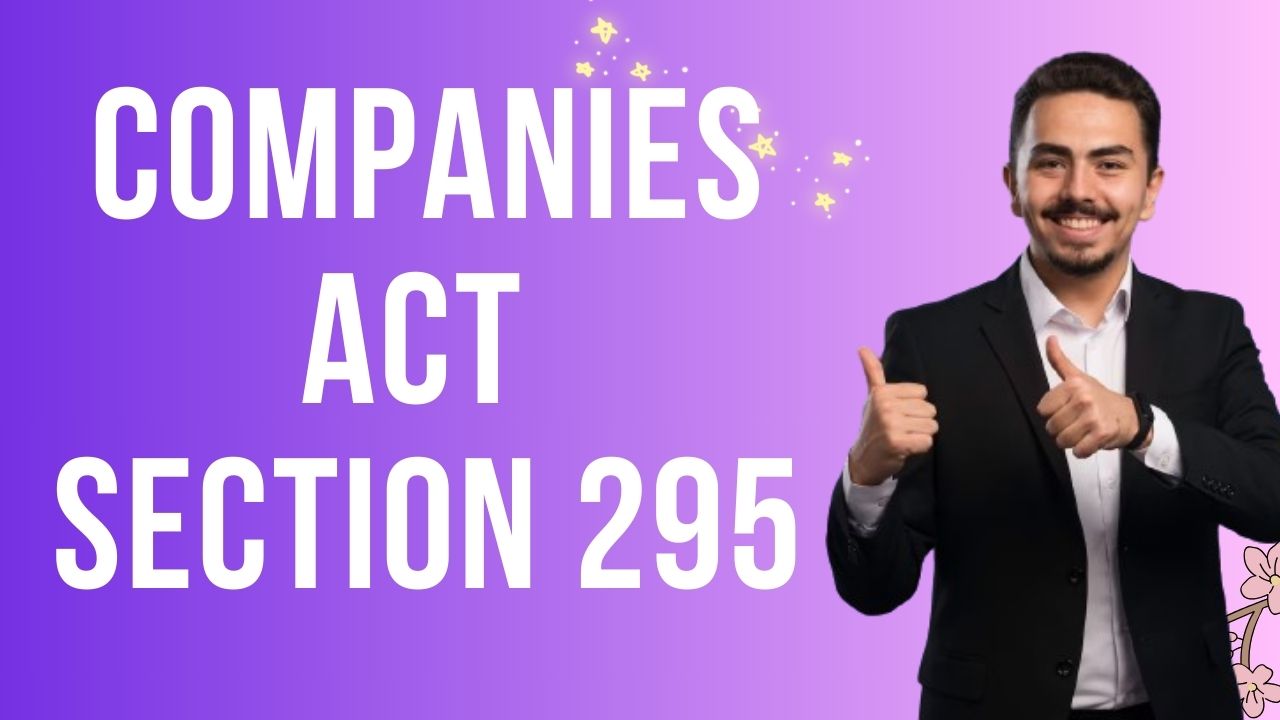
Companies Act Section 295: Payment of Debts by Contributory and Extent of Set-Off
Section 295 of the Companies Act provides a legal framework relating to the obligations of contributories to pay debts owed to a company in the process of winding up, and also outlines the conditions under which such contributories may be entitled to claim set-offs. This section ensures fairness in the distribution of a company’s remaining assets among its creditors and stakeholders during liquidation. A detailed interpretation of the section is as follows:
1. Power of the Tribunal to Order Payment by Contributory
Once a company has been ordered to be wound up by the Tribunal, it becomes essential to assess and collect any amounts owed to the company by those associated with it. The Tribunal, therefore, holds the authority to issue an order requiring any contributory who is included in the official list of contributories to make payments to the company. Such payments may be required either from the contributory directly or from the estate of the person whom the contributory legally represents, such as in the case of a deceased member or an insolvent estate.
Importantly, this obligation to pay does not include amounts owed under statutory calls (calls for unpaid share capital) made in accordance with the provisions of the Companies Act. Instead, it pertains to other forms of debts or liabilities that a contributory might owe to the company under different circumstances.
The manner in which the payment is to be made is also at the discretion of the Tribunal and will be specified in the order issued by it.
2. Tribunal's Discretion to Allow Set-Offs in Specific Cases
While contributories may owe money to the company, there may also be circumstances in which the company owes money to the contributories. Section 295 recognizes this and allows for certain set-offs, subject to specific conditions, depending on the type of company involved:
(a) In the Case of an Unlimited Company:
If the company is an unlimited liability company, the Tribunal may permit a contributory to offset any money that is due to him or the estate he represents from the company. However, such a set-off is allowed only if the money arises from an independent dealing or contract between the contributory and the company.
This means the claim must be based on a separate transaction that is distinct from the contributory’s role as a member. It is crucial to note that any sum due to the contributory as a shareholder such as unpaid dividends or profits cannot be used as a basis for a set-off in this context.
(b) In the Case of a Limited Company:
In a limited liability company, the scope for set-off is more restricted. Only those directors or managers whose liability to the company is unlimited (a relatively rare scenario but possible through contract or company articles) may be allowed such a set-off. The Tribunal, in its discretion, may allow such directors or their estates to offset any amount due from the company, again subject to the same principle that it must be based on independent transactions.
3. Set-Offs When All Creditors Have Been Paid in Full
In the event that all the creditors of the company have been fully paid, the law takes a more lenient approach with respect to the rights of contributories. At this point, if a contributory has any legitimate financial claim against the company on any basis whatsoever that amount may be considered as a set-off against any future call made by the liquidator or Tribunal. This provision is intended to promote equity among members once external liabilities have been discharged.
© 2020 CREDENCE CORPORATE SOLUTIONS PVT. LTD. | Website by Wits Digtal Pvt. Ltd.
Leave a Comment